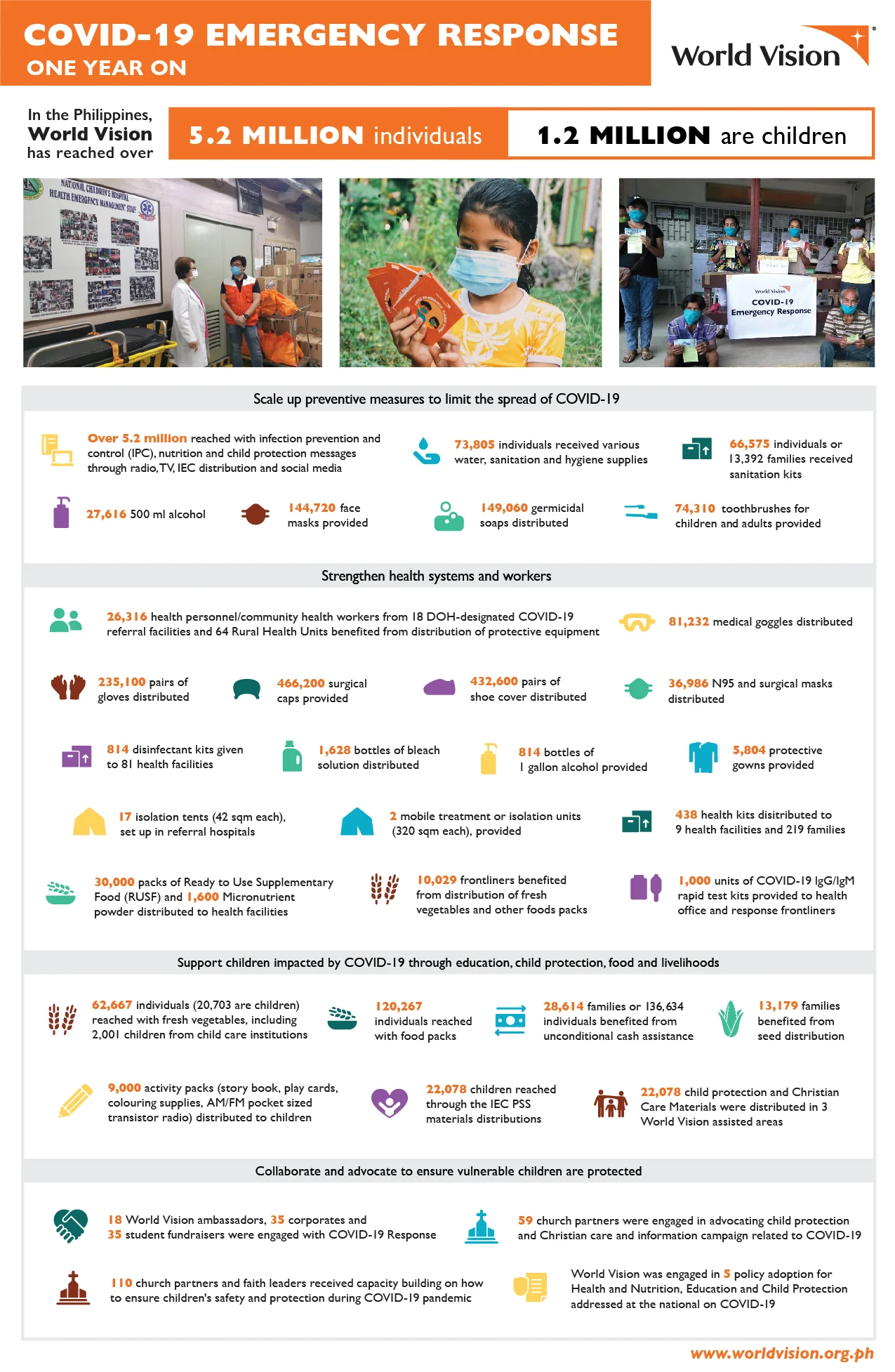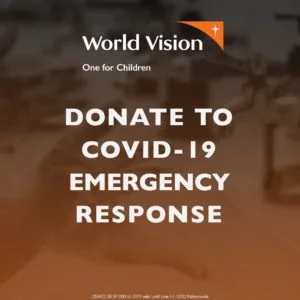Data as of: 2024-04-27 09:27
Cases: 4,140,383
Active:
Recovered: 4,067,381
Deaths: 66,864
Data source: Worldmeters
COVID-19 is a contagious disease that was first identified in Wuhan, Hubei, China, in December 2019. It causes flu-like and respiratory symptoms and can be transmitted from person to person.
The World Health Organization (WHO) has observed that the novel coronavirus (COVID-19) spreads less efficiently than the influenza or flu virus, largely because it has a longer incubation period. A person with COVID-19, however, will on average spread it to more people than a person with seasonal flu. The WHO also notes that the illness caused by COVID-19 is much more severe than that of the flu, and has a higher mortality rate.
Common signs include respiratory symptoms, fever, cough, chills, body ache, shortness of breath and breathing difficulties. In more severe cases, infection can cause pneumonia and severe acute respiratory syndrome.
How does this pandemic affect children?
-
Although children have not been significantly affected by the virus at this point of the pandemic, they nevertheless are extremely vulnerable to cascading impacts of this emergency.
-
The implementation of community quarantines under the Code Red Sublevel 2 limits the ability of most Filipinos to generate and receive income and to provide for the needs of their children.
-
When family members are sick and cannot work or put food on the table, children are also put at a higher risk of malnutrition, diarrhea, pneumonia, and other killer diseases.
-
As their caregivers become fearful and anxious about the outbreak, this adversely affects children as they observe their caregivers’ behaviours and emotions for cues on how to manage their own feelings.
-
With the indefinite suspension of classes due to COVID-19, children are spending more time on the internet, exposing them to the dangers of online sexual exploitation
-
Children experiencing community and household quarantines, the loss of family members and friends, and increasing deprivations due to social disruption may experience psychosocial trauma
What is World Vision doing to help?
Our response to the most vulnerable people is centered on 17 countries, where we are focused on prevention of transmission, supporting health responses, and caring for children made vulnerable by this crisis.
In the Philippines, World Vision:
Works with with local communities, media partners and faith leaders to amplify prevention and control messages, while also supporting the protection of children.
Supports health facilities through provision of disinfectant kits and tents that serve as isolation/triage/treatment areas.
Provides providing families with sanitation kits that include bath soaps, alcohol, face masks, toothpaste and toothbrushes.
Will provide most vulnerable families with access to temporary income through unconditional cash transfer initiatives.
Through its advocacy, public engagement, and partnerships, World Vision is able to able to inform global and national policy, mobilise support for humanitarian action by governments and the general public, as well as form strong partnerships to achieve positive change. Strengthening the voices of children and civil society, and active advocacy and engagement with decision makers is at the heart of World Vision’s COVID-19 response.
World Vision’s Appeal
World Vision calls on everyone to heed the health department’s call to practice proper hygiene, particularly hand washing, amid COVID-19. Proper hand washing not only protects everyone, especially children from the coronavirus inspection, but also helps us against other diseases.
That everyone practices physical distancing to fight the spread of coronavirus. World Vision also advocates for a clear program and support, especially to people whose livelihoods are threatened by the community quarantines. Failure to do so increases the risk of the whole population to further exposure to the virus.
We also ask that you do not panic but to take this time to spend more time with your children, do meaningful activities together and help them cope from the stress caused by the pandemic.
World Vision calls on its donors and partners to support the ongoing health response
FAQ’s
-
How can you protect yourself and your loved ones?
WHO standard recommendations for the general public to reduce exposure to and transmission of a range of illnesses are as follows:
-
Frequently clean hands by using alcohol-based hand rub or soap and water;
-
When coughing and sneezing cover mouth and nose with flexed elbow or tissue – throw tissue away immediately and wash hands;
-
Avoid close contact with anyone who has fever and cough;
-
If you have fever, cough and difficulty breathing seek medical care early and share previous travel history with your health care provider;
-
When visiting live markets in areas currently experiencing cases of novel coronavirus, avoid direct unprotected contact with live animals and surfaces in contact with animals;
-
The consumption of raw or undercooked animal products should be avoided. Raw meat, milk or animal organs should be handled with care, to avoid cross-contamination with uncooked foods, as per good food safety practices.
-
Should people wear masks?
The World Health Organization states that if you are healthy, you only need to wear a mask if you are taking care of a person with suspected infection. The WHO states that a medical mask is not required, as no evidence is available on its usefulness to protect non-sick people.
However, in the Philippines, the Inter-Agency Task Force has required Luzon residents to wear face masks when leaving their homes to help fight the spread of the virus. Local government units were also directed to issue the necessary corresponding orders requiring the use of face masks, along with penalties for violations of the measure.
-
Can the virus be treated?
Just like the common cold there is no specific medicine recommended to prevent or treat the new coronavirus. However, those infected with the virus should receive appropriate care to relieve and treat symptoms, and those with severe illness should receive optimised supportive care such as oxygen.
-
How is this affecting your operations?
We are closely monitoring the situation which is changing by the day. We are providing travel guidance for staff as well as health information that is designed to keep them safe. We will also be led by government and local authority health guidance which may at times prevent travel or require people to work from home.
-
Are any sponsored children affected by coronavirus?
The virus is present in places where World Vision has existing development projects and some children have been infected by the virus. The safety and wellbeing of vulnerable children is our highest priority. If a child become seriously ill from coronavirus or any other illness, we make sure that they are provided with proper interventions (like food, COVID care kits, etc) for the children while on quarantine.
-
What are your concerns for children and those you work with?
Areas with effective health systems are in a much better place to monitor, identify and treat those with the virus, as well as to prevent its spread. We are most concerned about provinces where the health systems and monitoring are weak, where people may already be suffering from diseases which are common among the poor, such as TB, pneumonia, HIV and AIDS, or where immune systems are compromised by severe malnutrition. People living in these contexts are at greater risk from coronavirus.
For more #COVID19 updates, you can also visit Department of Health Philippines official website, www.doh.gov.ph or World Health Organization official website – www.who.int
You can send much-needed help to equip families by providing them supplies which they can use to fight the COVID-19 pandemic , click the image to donate.
Corporate Partners:
Ways to support World Vision Philippines’ COVID-19 Emergency Response
We are not alone in the fight against COVID-19. Through the following partner donation portals, everyone can conveniently support and help vulnerable families and medical frontliners: CLICK HERE





